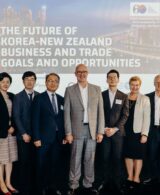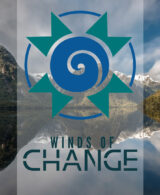Asia Forum: Economics or Security? Or Cooperative and Comprehensive Security?


17 November 2022
The Southeast Asia Centre of Asia-Pacific Excellence, in collaboration with Asia Forum, invites you to attend this upcoming session at the Bell Gully building featuring guest speaker Emeritus Professor Gary Hawke, Senior Fellow, NZ institute of Economic Research.
Synopsis
Analysis requires categorisation. We accumulate knowledge by generalisation, whether we think of a “covering law” which enables us to deal with accumulated observations as a unit, or if we conceive confronting conjectures with empirical observations. But we obfuscate if we bundle together inappropriately and conceal significant features. Simplicity is desirable, oversimplicity is dangerous, and getting hung up on the distinction would be the occupational hazard of the academic if it were not their occupation. Achieving security may have costs. But prosperity versus security is not a simple tradeoff. One of the less-recognised costs of the “war on terror” was loss of focus on the concept of “Co-operative and Comprehensive Security”. Like “Open Regionalism” (and its descendant, “Open Plurilateralism”), and “Concerted Unilateralism”, its origins are not in the North Atlantic but in Asian thinking. We should look to our geography and not to our history whenever we are asked to choose between economics and security, or worse, trade versus security, or even values versus interests.

Keynote Speaker:
Gary Hawke joined the staff of Victoria University of Wellington in 1968, and retired as Head of the School of Government and Professor of Economic History in 2008. He was a visiting fellow at Stanford University in the United States, All Souls’ College, Oxford in the United Kingdom, at the Australian National University in Australia, and with a number of institutions in Japan. He was Tawney Lecturer for the Economic History Society in the UK in 1978, and in 1998 in New Zealand, he was awarded the NZIER-Qantas Prize in Economics. He is a Fellow of the Royal Society of New Zealand, Distinguished Fellow of the NZ Association of Economists and Fellow of the Institute of Public Administration of New Zealand. He is a Companion of the New Zealand Order of Merit.
As Director of the Institute of Policy Studies from 1987 to 1998, he was responsible for projects in a wide area of public policy, including relations among Australia, New Zealand and the United States, New Zealand’s position in the Asia-Pacific region, public sector reform, taxation policy, regulatory management, the public responsibilities of private corporations and interactions between public and private sectors, education policy, the future of the welfare state, and biculturalism. His own publications are in economic history and public policy.
He has consulted for government on education policy, social science capabilities, and retirement policy, and recently retired from the chair of the NZQA Technical Overview Group (Assessment). He was a member of the board of the New Zealand Committee of the Pacific Economic Co-operation Council, NZPECC from 1987 to 2022, serving as chair 2002-09. He is a member of the Academic Advisory Council of the Economic Research Institute for ASEAN and East Asia (ERIA) and represents NZ Institute for Economic Research on ERIA’s Research Institutes Network.
He is now Emeritus Professor, Victoria University of Wellington, and Senior Fellow, NZ Institute of Economic Research.







